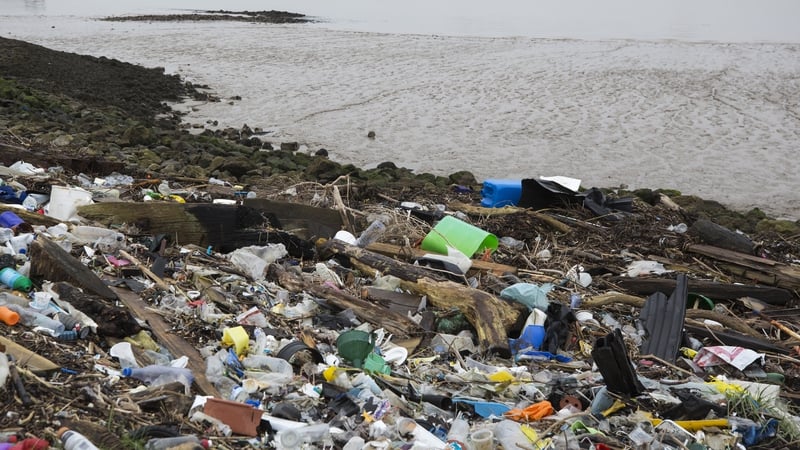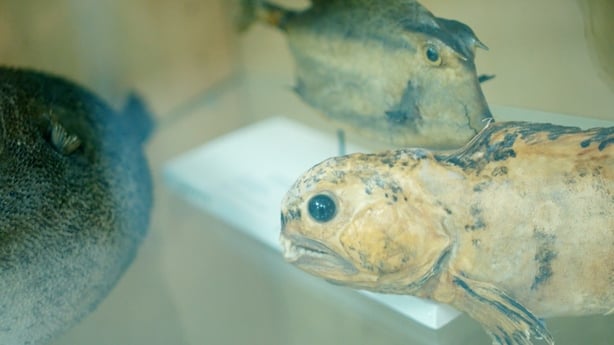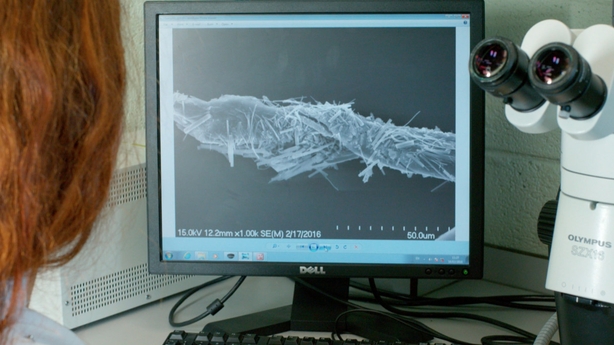NUIG study finds 73% of deep sea fish ingested plastic...

Microplastics are small plastic fragments that come from larger pieces like clothing and personal care

New research by scientists at NUI Galway has laid bare the damage microplastics are having on fish living at extreme depths in the northwest Atlantic.
Researchers found 73% of deep water fish had ingested plastic particles, one of the highest frequencies in fish anywhere in the world ever reported.
The research was conducted during a transatlantic crossing by the Marine Institute's Celtic Explorer research vessel.
During the journey, scientists recovered dead deep-sea fish by trawling depths of up to 600 metres in the northwest Atlantic Ocean.
Among the species they caught were three types of Lanternfish, Rakery Beaconlamp, Stout Sawpalate and Scaly Dragonfish.
Once back on shore, the team examined the stomach contents of the 233 fish they had gathered, which ranged in size from 3.5 to 59 centimetres.
They found 73% had microplastics inside them - small plastic fragments that come from larger pieces like clothing and personal care products that are dumped in the ocean.
The researchers say this is one of the highest frequencies of microplastics ever recorded in fish anywhere in the world.
One small Lanternfish, just 4.5 centimeters long, had 13 microplastics in its stomach.
Due to their low density, most of these microplastics float at the sea surface.

Resarchers say this is one of the highest frequencies of microplastics ever recorded in fish (Pic: Dawid Piotr Szlaga)

The team examined the stomach contents of the 233 fish they had gathered (Pic: Dawid Piotr Szlaga)
Alina Wieczorek, the lead author of the study and PhD candidate from the School of Natural Sciences and Ryan Institute at NUI Galway, said: "Deepwater fish migrate to the surface at night to feed on plankton and this is likely when they are exposed to the microplastics."
The scientists acknowledge that the sample of fish may have come from a particularly polluted area of the ocean where plastics accumulate due to certain tides and currents.
Nevertheless, the researchers say their findings are worrying, not only because it is further evidence fish are ingesting microplastics, but also because it shows deep water fish far from our shores are also at risk.
Dr Tom Doyle, a co-author of the study from the Ryan Institute at NUI Galway, said: "While there is clearly a concern that the ingestion of microplastics with associated toxins may have harmful effects on these fishes or even the fishes that feed on them, our study highlights that these seemingly remote fishes located thousands of kilometres from land and 600 metres down in our ocean are not isolated from our pollution.
"Indeed, it's worrying to think that our daily activities, such as washing our synthetic clothes in our washing machines, results in billions of microplastics entering our oceans through our waste water stream that may eventually end up in these deep-sea fishes."
Large varieties of marine species are capable of ingesting such plastics and the substances can cause significant internal damage to them.
Many varieties of plastics are extremely toxic because of additives added to them during manufacture.
The danger, therefore, is not only confined to the creature that eats the plastic but can also transfer up the food chain as they are preyed upon.
The study is published in the journal Frontiers in Marine Science.
Information taken from RTE NEWS
MORE NEWS






